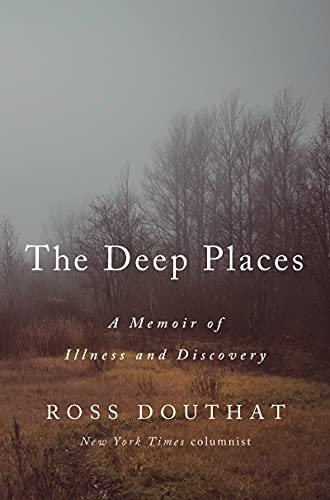COVID and chronic illness themed miscellany for this week:
Revolving Door of Corona-life . . . At Medscape: “Unvaccinated People Likely to Catch COVID Repeatedly” Don’t let the title tempt you into knee-jerk crazypants politicizing of a virus that does not, at all, care about your politics. I think the take away message for sane people is that regardless of whether your initial exposure to COVID-19 is via vaccine or natural infection, it’s probably not going to be your last encounter.
In other words, let go of your fantasy world in which you get the vaccine or you get a natural infection and you’ve therefore checked off “survive COVID” from your bucket list and can blissfully go back to visiting all the national parks, or learning Elvish, or whatever it was you preferred to be doing with your mental space. Instead (or in addition, if we want to be mentally-healthy), begin thinking about the parts of this equation you can control.
Ventilation! Since the pandemic began, I’ve had several important family-related trips to take, and for three of those I got to stay in old-school budget resort-inns, locally-owned and priced well below equivalent chain hotels (think Hampton Inn as our upmarket benchmark) in the same area. You give up other niceties at these places, but in exchange you get a room with superb ventilation.
Basic structure is this:
- Main entry to the room is through either a door that lets directly outdoors or that lets onto a supremely well-ventilated (via loads of open windows along the sheltered corridor) hallway. In a cold climate, you could do this via an aggressively filtered mechanical air exchange.
- 2nd exterior ventilation source at the other end of the room, via a balcony, patio, or operable window. This lets you get cross-ventilation, and get outdoor air even when you want your main entrance locked.
- Minimal housekeeping. (My preference is zero during my stay regardless, so I like this new approach to protecting the staff). You can use the exterior ventilation if need be during your stay too, but even better: Just have the room to yourself. Not complicated.
- Independent wall (think: “window”) units for HVAC. No central all-building ventilation whatsoever. FTR if you ever think about solar: You can use solar to run a heat pump, which is what these things are. Just sayin’.
This is an achievable, simple, easy approach to designing or retrofitting buildings. Yes, it’s especially adaptable to mild climates, but versions of this can be made to work in temperature and humidity extremes. (I would hazard the main change is running HEPA filters instead of relying so much on outside air.) Something to think about.
Personal anecdote: The spouse had a cold the week before I was scheduled to travel. By taking *just* ventilation precautions plus handwashing and him wearing a cheap cloth mask in shared spaces, I who always get the cold experienced just an extremely mild version. Very tired, but barely-sick and only briefly. Nothing like what he got (and he’s a very healthy guy). Pretty good results. Very happy with that.
PPE! Spoke to a friend whose day job is running a hospital. She says that through a two-tiered set of precautions, her hospital has been able to get work-related COVID infections down to zero. In low-risk settings (no symptoms of COVID, no positive tests), employees wear surgical masks and goggles while doing patient care. In the ER and with COVID-positive patients, employees put on everything and its N95 cousin (I didn’t ask her for the specifics — if you’re in healthcare, you know the standards by now). It works. Employees do get infections via family or community contact, but since going with that two-track protection system, they’ve eliminated hospital-acquired infections.
Back to vaccines: My friend reports that in her ICU, approximately 90% of COVID cases are in unvaccinated persons. The 10% of vaccinated COVID patients requiring ICU care have other very significant co-morbidities. Morals of the story:
- If you’re otherwise-healthy, getting vaccinated seems to be a very effective way to avoid ICU-level COVID infections.
- If you have significant co-morbidities, keep on doing all the things to avoid exposure in the first place, regardless of vaccination status.
Oh but vaccines: My friend also told the very depressing story of an employee with a severe autoimmune condition who attempted to get a medical exemption for her hospital’s vaccine mandate (required by their state). Unfortunately she couldn’t find a doctor willing to sign for her, not surprising in retrospect since a quick google of her condition indicates that on average patients with her diagnosis fare better if vaccinated than not.
Alas, she did not think to go up the administrative chain in seeking help in getting an exemption given her own, very specific, not-average personal medical history. (Again: The average person with her dx would be better off vaccinated — see that 90%, above). She got the vaccine instead, and two months later is still out on disability from the resulting reaction.
Tragic twist: The employee in question works an administrative position for which the essential functions can all be done remote.
This is why mandates are a problem. Her employer had already proven the ability to prevent disease transmission through appropriate precautions. Her employer was ready and able to make extremely minor changes in the employee’s responsibilities in order to accommodate her catch-22 medical condition, for which neither natural infection nor vaccine-acquired immunity were viable options and they’d kept her healthy thus far.
Why’d she take the vaccine? Because it was that or lose her job, and she lives in a state where the bureaucracy is not nice to people who push back against the powers that be. She had no idea she had an admin up the chain who would have both found a legal workaround and found a way to protect all employees and patients.
It can be done.
And this is why I oppose the mandates.
I strongly favor the vaccine generally, but that is starkly different from saying that “I guess some people are just gonna have to have the neurological sequelae, price of not being an average patient.”
Back to the likely coronavirus future: Sooner or later, you will join the higher-risk group for COVID-19. As an introvert who loves the outdoors, it is very easy for me to like the many interventions that collectively make it more-possible to more-protect more-vulnerable individuals. But even if All The Fresh Air and Just Stay Home are not your cup of tea, we will do well to find as many small changes to reduce risk as we can.
Little example to suggest: Moving towards home-based rather than institutional care as our go-to (when possible) for the elderly, sick, or significantly-disabled who need professional medical or nursing assistance.
Meanwhile, take care of yourself! Here’s an article on an initial effort at a clinical intervention to manage hospital patient blood sugar as a way to reduce COVID mortality. Even if you aren’t-that-healthy, this is a risk factor most (not all, but, yes, most) people can improve by making small, simple changes which over time can build into a bigger shift towards better-ish health. Not necessarily super-easy, super-fun changes, but valuable ones in light of the emerging information that you really can’t be once-and-done with this disease.
***
Finally, stepping back and looking at the bigger picture: I have a love-hate relationship with the things Rod Dreher says, but his review of Ross Douthat’s new memoir on life with severe chronic illness is promising. Can attest, everything Dreher says and quotes Douthat about concerning the reality of the medical establishment, getting ignored and dismissed if your disease doesn’t meet spec, and the profound social isolation of chronic illness? Absolutely spot-on accurate.
If you’re not up for reading the whole book, at least make yourself read Dreher’s Cliff Notes version.

Photo: Book cover of The Deep Places: A Memoir of Illness and Discovery by Ross Douthat.











